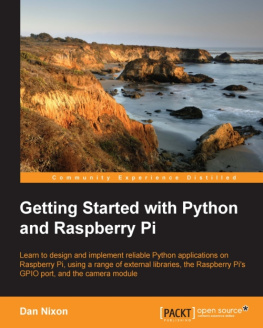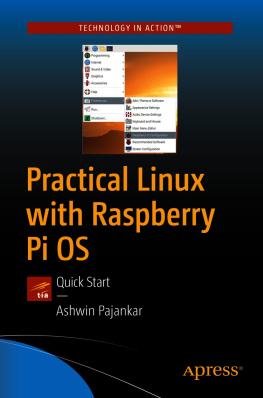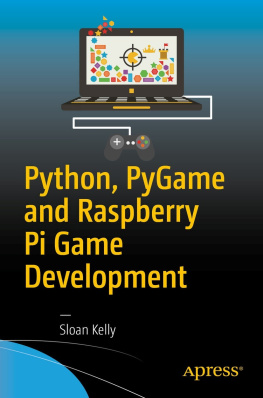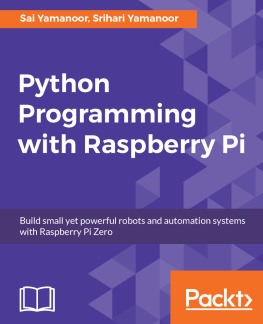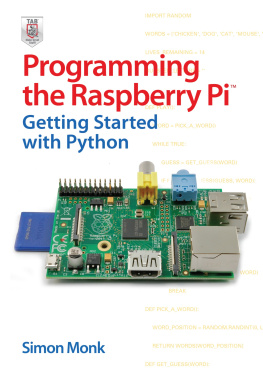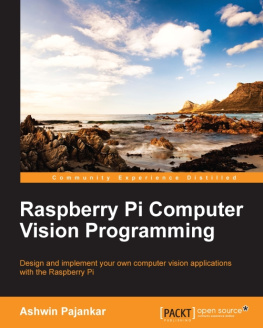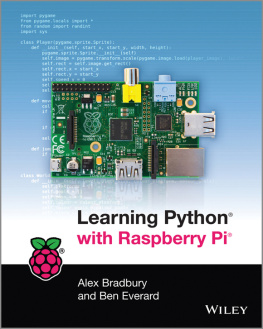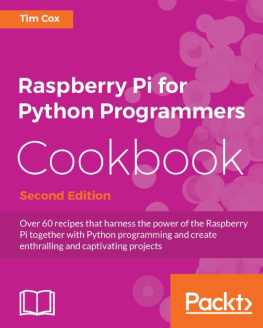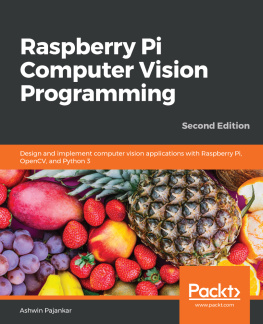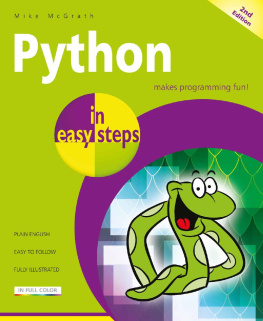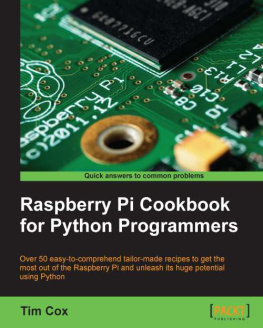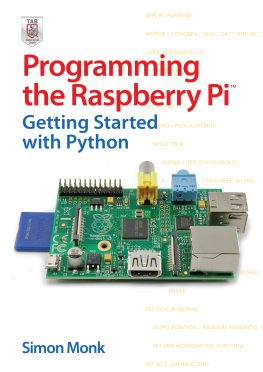Dan Nixon - Getting Started with Python and Raspberry Pi
Here you can read online Dan Nixon - Getting Started with Python and Raspberry Pi full text of the book (entire story) in english for free. Download pdf and epub, get meaning, cover and reviews about this ebook. year: 2015, publisher: Packt Publishing, genre: Computer. Description of the work, (preface) as well as reviews are available. Best literature library LitArk.com created for fans of good reading and offers a wide selection of genres:
Romance novel
Science fiction
Adventure
Detective
Science
History
Home and family
Prose
Art
Politics
Computer
Non-fiction
Religion
Business
Children
Humor
Choose a favorite category and find really read worthwhile books. Enjoy immersion in the world of imagination, feel the emotions of the characters or learn something new for yourself, make an fascinating discovery.
Getting Started with Python and Raspberry Pi: summary, description and annotation
We offer to read an annotation, description, summary or preface (depends on what the author of the book "Getting Started with Python and Raspberry Pi" wrote himself). If you haven't found the necessary information about the book — write in the comments, we will try to find it.
Learn to design and implement reliable Python applications on the Raspberry Pi using a range of external libraries, the Raspberry Pis GPIO port, and the camera module
About This Book
- Design user-friendly command-line and graphical user interfaces
- A step-by-step guide to learning Python programming with the Pi
Who This Book Is For
This book is designed for those who are unfamiliar with the art of Python development and want to get to know their way round the language and the many additional libraries that allow you to get a full application up and running in no time.
What You Will Learn
- Fundamentals of Python applications
- Designing applications for multi-threading
- Interacting with electronics and physical devices
- Debugging applications when they go wrong
- Packaging and installing Python modules
- User interface design using Qt
- Building easy to use command-line interfaces
- Connecting applications to the Internet
In Detail
The Raspberry Pi is one of the smallest and most affordable single board computers that has taken over the world of hobby electronics and programming, and the Python programming language makes this the perfect platform to start coding with.
The book will start with a brief introduction to Raspberry Pi and Python. We will direct you to the official documentation that helps you set up your Raspberry Pi with the necessary equipment such as the monitor, keyboard, mouse, power supply, and so on. It will then dive right into the basics of Python programming. Later, it will focus on other Python tasks, for instance, interfacing with hardware, GUI programming, and more. Once you get well versed with the basic programming, the book will then teach you to develop Python/Raspberry Pi applications.
By the end of this book, you will be able to develop Raspberry Pi applications with Python and will have good understanding of Python programming for Raspberry Pi.
Style and approach
An easy-to-follow introduction to Python scripting and application development through clear conceptual explanations backed up by real-world examples on the Raspberry Pi.
Dan Nixon: author's other books
Who wrote Getting Started with Python and Raspberry Pi? Find out the surname, the name of the author of the book and a list of all author's works by series.

